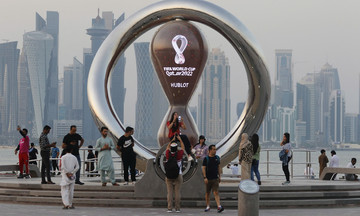Dahlmeier's written request, made before her expedition, stated that she did not want rescuers to risk their lives in the event of an accident and wished to be laid to rest on the mountain where she perished.
"It was her dream," spokesperson Faizullah Faraq told Bild. "Laura once said, 'I want to be buried in the mountains, that's my dream'. Now, it has come true."
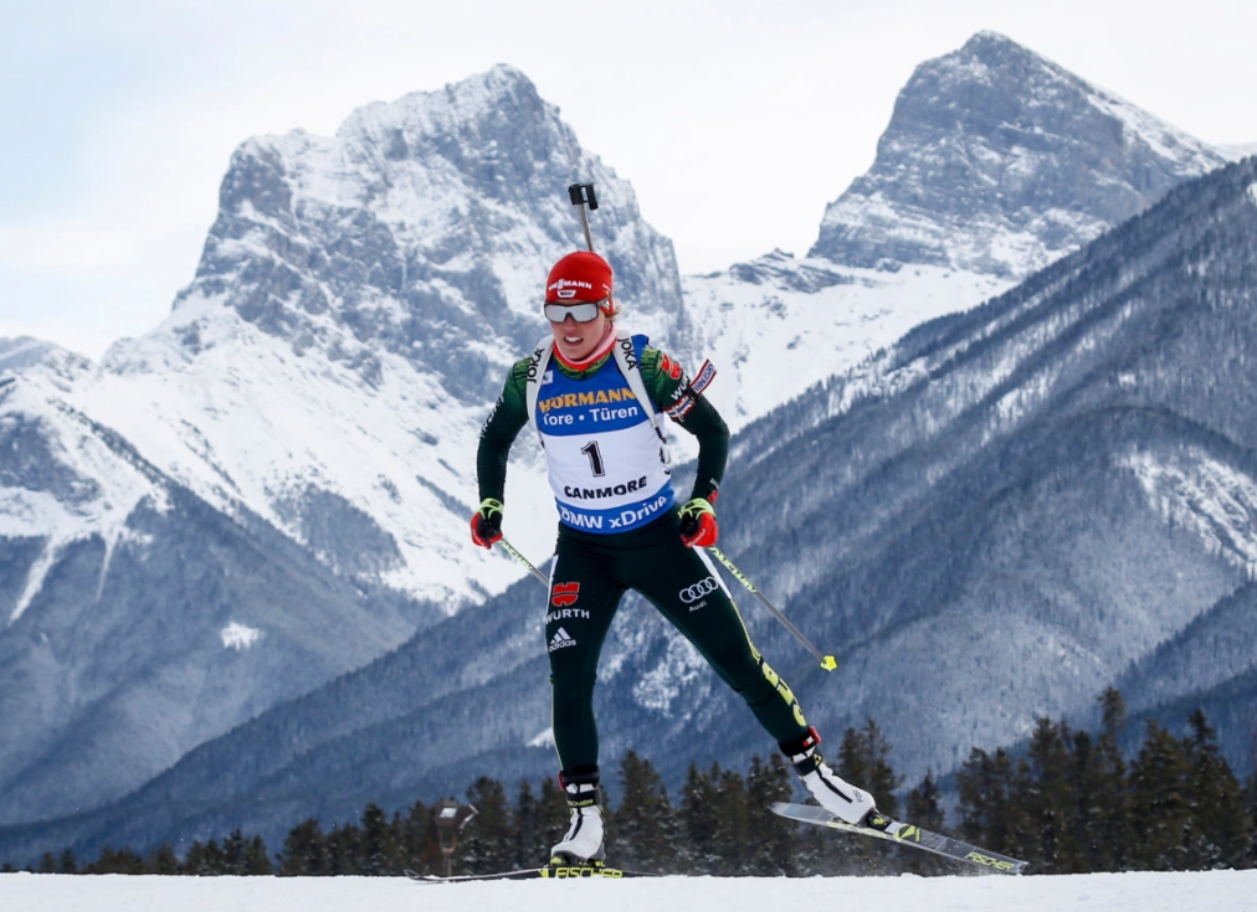 |
Laura Dahlmeier competes at the biathlon World Cup in Canada in 2019. Photo: AP |
Laura Dahlmeier competes at the biathlon World Cup in Canada in 2019. Photo: AP
Dahlmeier's representatives echoed this sentiment on her official Instagram account, stating, "This was Laura's explicit and documented wish. Her family requests that the public and authorities respect this decision."
According to Bild, local authorities are considering Dahlmeier's request and have not yet released an official statement.
The accident occurred on 28/7 while Dahlmeier and her climbing partner, Marina Eva Krauss, were ascending the 6,069-meter Laila Peak. At approximately 5,700 meters, they were struck by a rockslide. Dahlmeier sustained fatal injuries, while Krauss managed to signal for help and was rescued a day later.
Severe weather, including heavy rain, strong winds, and poor visibility, prevented Pakistani military helicopters from reaching the accident site for two days. Rescue efforts resumed on the morning of 30/7, with two teams comprising four international climbers and two support personnel. Dahlmeier's management later confirmed her death to German media.
Veteran German climber Thomas Huber, a member of the rescue team, said, "We decided to leave Laura there. It was her wish."
Another team member, Jackson Marvell, added, "Recovering Laura's body was technically possible, but extremely risky. Doing so against her wishes would have been disrespectful."
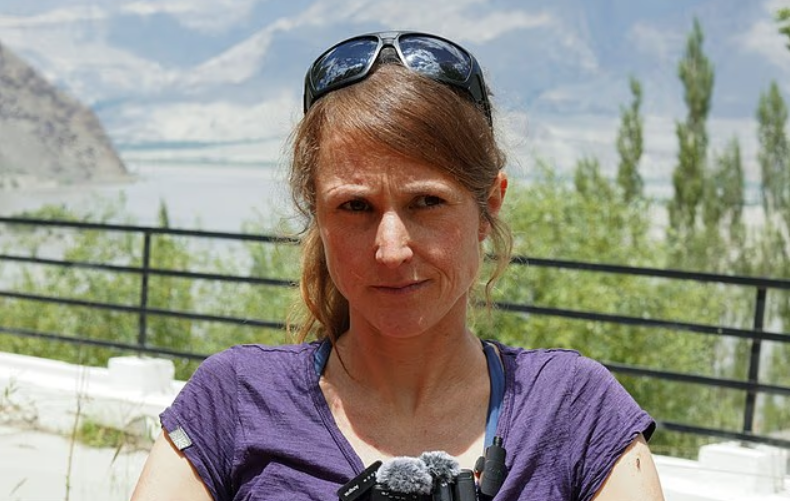 |
Marina Eva Krauss survived the rockslide while climbing Laila Peak in northern Pakistan. Photo: Reuters |
Marina Eva Krauss survived the rockslide while climbing Laila Peak in northern Pakistan. Photo: Reuters
Krauss tearfully recounted the moment she made the difficult decision to leave her friend's body and seek help during a press conference.
"I saw a large rock fall and hit Laura, throwing her against the cliff face. From that moment, she didn't move," Krauss said. "I called her name, hoping for a response, but there was nothing. She didn't move, didn't react. I knew the only way to help her was to call for a helicopter."
The accident happened as the two were descending from the summit. According to Krauss, they might have avoided the rockslide had they departed half an hour earlier.
Dahlmeier's representatives indicated that, given the severity of her injuries and Krauss's account, she likely died instantly.
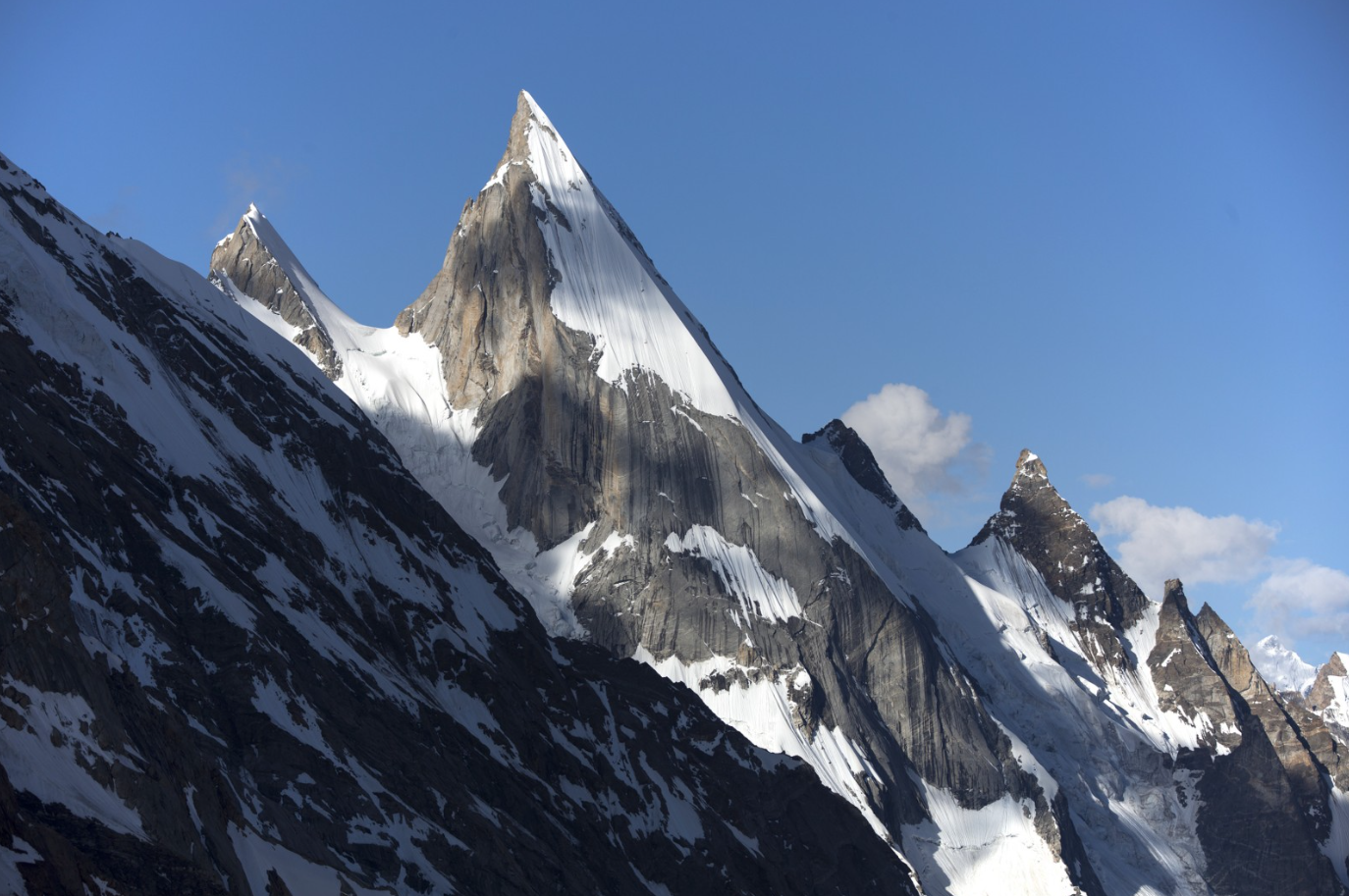 |
Laila Peak (6,096 m) is located in the Khuspang Camp area of the Hushe Valley, near the Gondogoro Glacier in the Gilgit-Baltistan region of northern Pakistan. Photo: Lian Deng |
Laila Peak (6,096 m) is located in the Khuspang Camp area of the Hushe Valley, near the Gondogoro Glacier in the Gilgit-Baltistan region of northern Pakistan. Photo: Lian Deng
Every year, hundreds of climbers worldwide visit the mountains of northern Pakistan to conquer peaks in the Karakoram and Himalaya ranges. However, the region is prone to accidents due to avalanches, rockslides, and unpredictable weather.
Recently, the area has experienced above-average rainfall, resulting in widespread flash floods and landslides. At least 20 Pakistani tourists remain missing after being swept away by floodwaters near Chilas district in Gilgit-Baltistan, a starting point for many challenging climbs like Laila Peak and Nanga Parbat.
Laila Peak, at 6,096 meters, is situated in the Khuspang Camp area of the Hushe Valley, near the Gondogoro Glacier in Gilgit-Baltistan. Its distinctive spear-like shape has earned it the nickname "The Matterhorn of the Karakoram" among climbers.
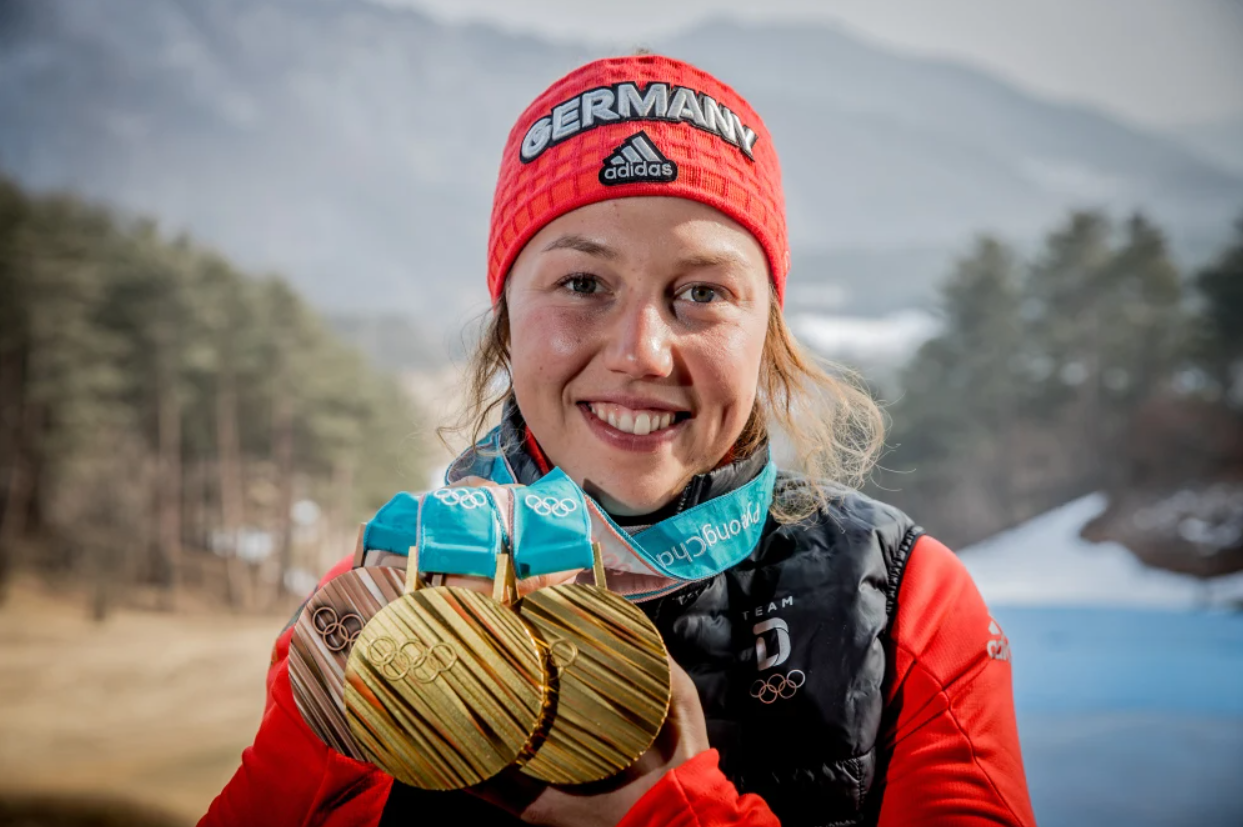 |
Laura Dahlmeier displays three medals at the Winter Olympics in Pyeongchang, South Korea, in 2018. Photo: DPA |
Laura Dahlmeier displays three medals at the Winter Olympics in Pyeongchang, South Korea, in 2018. Photo: DPA
Born on 19/8/1993 in Garmisch-Partenkirchen, Dahlmeier was one of Germany's most successful biathletes of the 21st century. Biathlon combines cross-country skiing and rifle shooting.
Dahlmeier won two gold medals and one bronze at the 2018 PyeongChang Winter Olympics, along with seven world championships, and was named German Sportswoman of the Year in 2017. She surprised the sporting world by retiring in 5/2019 at the age of 25 to pursue her passion for nature and outdoor sports.
After retiring from biathlon, Dahlmeier became a mountain and ski guide in her hometown of Garmisch-Partenkirchen in the Bavarian Alps. She undertook numerous challenging climbs, including Korzhenevskaya (7,100m, Tajikistan), Ama Dablam (6,800m, Nepal), and Great Trango Tower (6,200m, Pakistan).
Hong Duy (Daily Mail)



